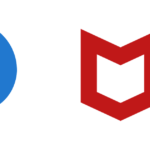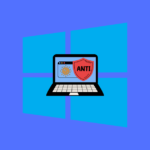As small business owners, we need to be aware of the various risks and threats associated with internet security. Cybersecurity is not just a concern for large corporations; small businesses are equally vulnerable to attacks. In this section, we’ll discuss some common threats and provide tips on how to protect your small business.
One major risk small businesses face is data breaches. Cybercriminals often target smaller businesses because they believe their security measures are not as robust as larger organizations. Loss of customer information, financial data, and intellectual property can have devastating consequences for the reputation and financial health of our businesses.
Some common threats for small businesses include:
- Phishing emails – These are deceptive emails that appear to come from legitimate sources but are actually attempts to steal sensitive information. Train your employees in spotting phishing emails to minimize risk.
- Ransomware – A type of malware that encrypts your data and demands payment in exchange for its release. Regular data backups and up-to-date security software can help protect your business from ransomware.
- Unsecured Wi-Fi – Public Wi-Fi networks or those without proper security measures can be exploited by hackers to access sensitive information. Ensure your business’s Wi-Fi network is protected with strong passwords and encryption.
To bolster your small business’s internet security, we recommend a few essential practices:
- Keep security software updated – Regularly updating security software can help prevent known vulnerabilities from being exploited. As Forbes Tech Council advises, ensuring security software is up-to-date is crucial for businesses without dedicated IT teams.
- Create strong, unique passwords – Encourage your employees to use complex, unique passwords for all systems and applications to reduce the likelihood of unauthorized access.
- Educate employees – Regular training sessions on internet usage best practices, as well as how to recognize and respond to potential threats, can greatly enhance your small business’s cybersecurity.
- Implement multi-factor authentication (MFA) – Adding an extra layer of security to access your systems can go a long way in safeguarding sensitive information.
By being informed about the risks and taking proactive measures, we can better protect our small businesses from potential cybersecurity threats and maintain a more secure online environment.
Recognizing Potential Cyber Threats
As a small business, it is essential for us to recognize potential cyber threats to ensure our online security. There are various types of cyberattacks which can heavily impact our business, such as hackers, ransomware, and malware. By understanding these threats, we can proactively take measures to prevent them.
Hackers are individuals who exploit vulnerabilities in our systems to gain unauthorized access to our data or networks. They often use techniques such as phishing, which involves sending fake emails or messages to trick us into revealing sensitive information or installing malicious software. It’s important to train employees to recognize phishing attempts and to never click on unknown links or open suspicious attachments.
Ransomware is a type of malware that encrypts our data, making it inaccessible, and demands a ransom to restore access. To protect our business from ransomware attacks, we should regularly update our software and backup our data.
On the other hand, malware is malicious software, such as viruses, worms, and Trojans, which can infiltrate our systems and cause damage or data theft. We can fortify our defenses against malware with effective antivirus solutions, firewalls, and web filters.
- Be mindful of social engineering
- Regularly update software
- Maintain strong passwords and authentication methods
Social engineering is a manipulation technique used by cybercriminals to exploit our human nature and trust. These attacks can occur through phone calls, email messages, or online chats, aiming to deceive us into revealing sensitive information or granting unauthorized access. The key to combatting social engineering is awareness and education.
Zero-day attacks are those that exploit unknown vulnerabilities in software or hardware. These threats are challenging to defend against since they involve previously undiscovered security flaws. To minimize the risk of zero-day attacks, we need to keep our software updated and stay informed about potential vulnerabilities.
In conclusion, being aware of potential cyber threats and implementing appropriate preventive measures is crucial for ensuring the security of our small business. By staying informed and proactive, we can better protect ourselves from the ever-evolving landscape of cyberattacks.
Key Elements of Effective Internet Security

When it comes to ensuring the best internet security for small businesses, there are several key elements that we must consider. These components work together to create a comprehensive security strategy, protecting businesses and their valuable data from cyber threats.
Firstly, firewalls play a crucial role in creating a barrier between your business network and external sources. They monitor and filter incoming and outgoing network traffic, only allowing safe communication while blocking potential threats.
Encryption is another essential component in safeguarding sensitive data. By encrypting information, we make it unreadable to unauthorized users. This ensures that even if data is intercepted, the attackers cannot make use of it.
It’s also vital to have reliable antivirus software in place to detect and remove malware. Regularly updating antivirus software is crucial, as new threats are continually emerging.
We put together a list of some other essential elements of internet security:
- VPN: A Virtual Private Network (VPN) secures your business’s internet connection and creates a private, encrypted tunnel for data transmission. This helps to protect sensitive information and maintain privacy.
- Authentication: Implementing stringent authentication measures, like two-factor authentication, ensures that only authorized users can access your business’s digital assets.
- Data protection: Regularly backing up data and ensuring proper access control can prevent data loss or unauthorized access.
- Safe browsing: Encouraging employees to practice safe browsing habits, such as avoiding suspicious websites and not clicking on unknown links, can reduce the risk of cyberattacks.
- Network security: Regularly monitoring and maintaining the network helps identify vulnerabilities and potential security threats.
In summary, a robust internet security strategy for small businesses should include multiple layers of protection, such as firewalls, encryption, antivirus, VPN, and authentication. Additionally, focusing on data protection, safe browsing habits, and regular network maintenance is crucial to maintaining a secure online environment for your business.
Best Internet Security Software for Small Businesses

Norton Small Business
Norton Small Business is a top choice for small businesses looking to protect their data from ransomware attacks and security breaches. Offering endpoint protection for up to 20 devices, it’s easy to install and manage. Some of the key features include:
- Software updater to keep all applications, including security software, up-to-date
- Productivity tools that protect against online threats while maintaining optimal performance
- 24/7 customer support
- A 60-day money-back guarantee for more confidence in trying the product
Norton Small Business truly offers comprehensive protection for your company’s devices and data.
Kaspersky Small Office Security
Kaspersky Small Office Security is designed specifically with small businesses and remote teams in mind. Its versatile features cover a wide range of devices and systems, ensuring a secure work environment. We appreciate that the software provides:
- Automatic software updates for improved security
- Comprehensive protection for mobile devices, making remote work safer
- Centralized management for easier administration
With Kaspersky, small business owners can focus on growing their business without worrying about potential cyber threats.
Bitdefender GravityZone Business Security
[Bitdefender] GravityZone Business Security meets the unique demands of small and medium-sized businesses with powerful remote management capabilities and scalable features. Some of the aspects we find most beneficial are:
- Robust protection against cyber threats
- Easy remote management of devices and servers
- Advanced heuristics for detecting unknown threats
- Seamless integration with other Bitdefender products
Businesses can rely on [Bitdefender] GravityZone Business Security for a secure and efficient work environment.
Malwarebytes Business Solutions
Malwarebytes offers an array of business antivirus solutions tailored to the needs of small businesses. Their products focus on advanced malware scanning and threat detection. Key features include:
- Centralized management for easy administration
- Multi-platform compatibility for various devices and operating systems
- Real-time protection against threats and vulnerabilities
Employing Malwarebytes Business Solutions ensures that your business has the latest tools and technology to combat any cyber threats that may arise.
Ensuring Protection across Different Devices and Platforms

In today’s interconnected world, small businesses rely on various devices, platforms, and operating systems to stay productive. As such, finding an internet security suite that provides comprehensive protection across all those devices and platforms is essential. In this section, we will discuss how to ensure a consistent level of protection for different devices, including macOS, PCs, Mac computers, Android devices, file servers, and endpoints.
First and foremost, we recommend choosing an internet security suite that is built to work seamlessly with different operating systems. This will ensure that your assets are protected regardless of whether they run on macOS, Windows, or other popular operating systems. Some well-known internet security suites, such as [Bitdefender] and Kaspersky Small Office Security, offer compatibility with multiple platforms.
Here are a few key features to look for in an internet security suite to provide optimal protection for various devices:
- Anti-malware protection: A comprehensive security suite should include anti-malware protection that can detect and remove threats across different platforms, such as PCs, Mac computers, and Android devices.
- Firewall: A strong firewall is essential for safeguarding your network from unauthorized access and potential attacks, regardless of the devices connected to it.
- Endpoint security: Covering all endpoints, including file servers, is crucial in maintaining a secure network for your small business.
Besides these features, also consider investing in a security solution that gives you centralized control. This allows for easy management of security settings for all devices on the network. A user-friendly dashboard simplifies monitoring and ensures that you have a comprehensive overview of your small business’s security status.
Additionally, a security suite should also offer device control capabilities, enabling you to manage and restrict access to specific devices, such as USB drives, external hard drives, and other peripherals. This adds an extra layer of security and helps you maintain the integrity of your business data by preventing unauthorized copying or access to sensitive information.
By incorporating these considerations, you can confidently choose an internet security suite that provides robust protection for your small business’s diverse range of devices and platforms.
Additional Security Measures for Small Businesses

As a small business owner, it’s essential to prioritize internet security to protect sensitive data and maintain customer trust. We’ve compiled a list of additional security measures that help address common cyber threats faced by small businesses. These include using a strong password policy, implementing ransomware protection, and ensuring secure browsing.
- Password Manager: Using a password manager is an excellent way to generate and store unique, strong passwords for all your business accounts. This minimizes the risk of unauthorized access due to weak or reused passwords.
- Ransomware Protection: Protect your business from ransomware attacks by investing in dedicated ransomware protection software. This can help identify potential threats in real-time and prevent critical files from being encrypted and held hostage.
- Secure Browser: Browsing the internet poses potential security risks, so using a secure browser with built-in privacy features can keep your business information safer. This often includes strong encryption, ad-blockers, and additional security tools.
- Cloud Backup and Encryption: Ensure that all your important data is regularly backed up to a secure cloud storage service. This protects against data loss due to hardware failure or cyber attacks. Make sure to use encryption for sensitive data both in transit and at rest, adding an additional layer of protection.
To help keep your small business secure, consider implementing the following tactics:
- Conduct regular employee trainings on security awareness and best practices.
- Limit the number of users with administrative access to essential personnel only.
- Use multi-factor authentication for all business accounts.
- Keep all software up-to-date, including your operating system, antivirus, and firewall.
- Regularly monitor and review your network for potential vulnerabilities, and take action to address them.
By incorporating these additional security measures, we can take proactive steps in safeguarding our small businesses against cyber threats and ensuring a secure digital environment for our customers and employees.
Optimizing Small Business Security with Machine Learning
As small businesses increasingly rely on digital assets and sensitive data, ensuring the security of these resources is paramount. One approach to bolstering the protection of such assets is by leveraging machine learning techniques. In this section, we will explore the various ways machine learning can optimize security for small businesses.
The power of machine learning lies in its ability to analyze large volumes of data and identify patterns that might go unnoticed by human analysts. By incorporating machine learning into a small business’s security strategy, we can detect anomalies more effectively and respond to potential threats in real-time. For instance, machine learning can be used to:
- Monitor network traffic: By continuously analyzing network traffic, machine learning algorithms can identify suspicious activities or patterns indicative of a cyber attack, and alert administrators to take appropriate action.
- Analyze user behavior: With machine learning, we can establish baseline patterns of user behavior, and quickly detect when deviations occur, which could suggest that account credentials have been compromised.
However, to effectively utilize machine learning for security optimization, it’s essential to select the right tools and techniques. Some strategies to consider include:
- Collaborative Filtering: This technique allows us to identify malicious URLs or IP addresses by analyzing their relationships with known malicious or benign entities.
- Deep Learning: By using deep learning algorithms, we can build advanced models that can identify complex patterns and relationships to detect cyber threats in real time.
- Anomaly Detection: Machine learning algorithms can be used to detect anomalies in data, such as unusual user behavior, that may indicate a potential cyber attack.
When implementing machine learning in your security strategy, it’s crucial to keep up-to-date with the latest cybersecurity practices. This is because machine learning models may need to be regularly adjusted and retrained to account for the constantly evolving landscape of cyber threats.
Careful integration of machine learning into our security strategy can help safeguard our digital assets and sensitive data, while also allowing us to optimize our resources more efficiently. By embracing these techniques, small businesses can better protect themselves against the array of modern cyber threats they face today.
Answering Common Queries About Internet Security
As a small business owner, it’s important to have a clear understanding of internet security and how it impacts your company. In this section, we will briefly address some frequently asked questions regarding computer and network protection for small businesses.
- What are some common cybersecurity threats faced by small businesses?
Small businesses face various cybersecurity threats that can lead to financial loss and damage to their reputation. The top 3 most common cyber security threats are phishing, malware, and ransomware attacks. Phishing involves fraudulent emails, texts, or calls that trick individuals into sharing sensitive information. Malware is malicious software designed to gain unauthorized access to your system, while ransomware locks access until a ransom is paid to the attacker.
- What are the essential components of internet security for a small business?
Several factors contribute to internet security for small businesses:
- Regular software updates to ensure the latest security patches are in place.
- Implementation of a firewall and antivirus software to protect against unauthorized access or malicious traffic.
- Employee education to help them recognize and respond to potential cyber threats.
- Secure network connections, such as VPNs, for remote work.
- Regular monitoring and audits of the company’s network and systems.
- What kind of antivirus software should small businesses use?
There are many antivirus solutions available, and it is essential to select one that caters to your business’s needs. Some of the best antivirus software for small businesses include Trend Micro’s OfficeScan, Norton Small Business, and Bitdefender GravityZone.
Remember that internet security is an ongoing process that requires active participation from employees and business owners alike. By staying informed and taking proactive measures, you can significantly mitigate the risks associated with cyber threats and keep your business protected.
- Amazon Email Phishing: How to Identify and Avoid Scams - May 16, 2024
- Malwarebytes vs McAfee: Decoding the Ultimate Antivirus Battle - May 16, 2024
- Best Antivirus for Windows 10: Expert Recommendations for 2023 - May 15, 2024









